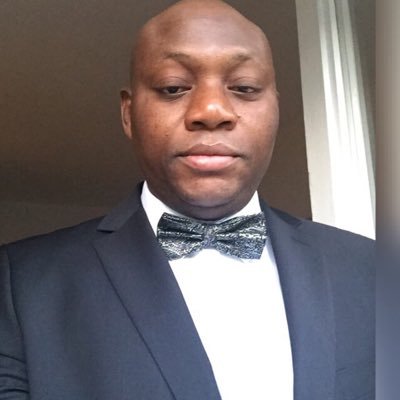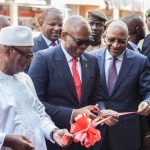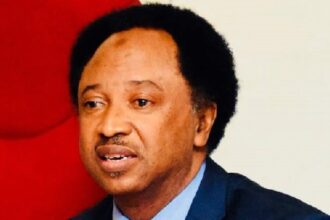By: Omo’oba Abiodun Odukoya
The paradigm of good leadership stands on the tripod of Vision, Mission and Passion.
History and unfolding events around the world have proven that educational qualifications, social background and intellectual capability, are not necessarily the catalysts to good leadership and neither is good governance, determined, only, by the intergrity of an individual, but rather by the collective intergrity of the system.
Vision is the most integral part of good leadership- especially in governance. Leadership in other areas of life might not be necessitated by vision, but in running the affairs of a nation, the leader must have a vision of where he wants to take his people. The vision-naturally, will not be acceptable to all the people and it might also, not be the best that could be envisioned at that particular time, for that particular nation, but it is pertinent that a leader must have a vision of where he wants to take his people nonetheless!
To highlight the importance of vision in leadership, let us look at the example of Lula da Silva of Brazil who rose from abject poverty as a former cobbler and metal worker to lead his country to it’s days of great prosperity, lowest unemployment rate and financial strengrh that saw its currency, the Brazillian Real appreciate about 200% against the American dollars.
Lula, as he’s popularly known in Brazil got involved in politics when his wife and baby died from hepatitis, a tragedy he thought a better health care system could have prevented. He had the vision and the mission to change his country- as an illiterate, and he did very well, irrespective of recent charges of corruption.
Vision in leadership is so essential that if a leader lacks it, no matter how good a team he assembles, his lack of vision will negate the efforts of his team because the oxygen of national growth and development is borne out of the vision of an individual- in every generation, though manifested by the providential selection of his subordinates.
In tandem with vision, Mission is the lubricant which propels the engine of development and the practical realisation of the seemingly indistinct opportunities available within the system. A leader without a vision cannot posses a mission while a government that lacks mission is only moving in circles on a perpetual merry-go-round. Vision is the genuine agent that manufactures mission and mission is the natural adrenaline that produces results that move a country forward.
The administration of President Muhammadu Buhari is not driven by vision, and as a result its mission cannot be defined. At this critical and defining moment in the history of Nigeria, no reasonable leader should jettison the idea of Restructuring. The entity Nigeria as it is today, metaphorically, is like a dilapidating tenements that the children of the owner are selling off, bit by bit. Starting from the roof, windows, doors and other fittings, this house might soon become an empty shell, vulnerable to the elements and could collapse at any moment.
Passion is the indispensable vehicle that moves vision and mission to its destination. What is President Buhari’s passion? If you mention corruption, let us objectively examine the shroud that the Buhari led APC have provided to cover those that might be in anyway instrumental to his re-election and his supporters. In saner climes, his performance at the NTA, The Candidates program would have seen a major decline in his poll’s numbers.
The President I desire for Nigeria must be detribalized and acculturated, not by cosmetics but in deed and in disposition. It will be undiscerning for anybody, even from Daura, to think that President Buhari falls into that category. Atiku by contrast has not shown any such tribal leanings. His record of service both in the public and private sectors of the economy speak for him. Utopianism is a rarity and no man is perfect. If Atiku has in anyway, which is not known to me, displayed any form of anti-secularity, it must be pardonanble, at least, in comparison to PMB’s egregious and haughty apathy towards the unity of our nation.
My grouse with PMB does not stem from the fact that he is a Fulani man, a Herdsman, an Old-Man or because he is a Muslim and definitely – since I have never benefitted from any government directly or indirectly – not because of his whitewash anti corruption crusade. My worry is rather for the future of our nation. I do not believe that Buhari understands much of what is happening around him and in Nigeria in particular. To worsen matters, he is extremely conservative, insensitive, nepotistic and weak. He cannot continue to lead a nation like Nigeria in the circumstances.
The matriarch of Buhari’s clan, the First Lady, Madam Aisha Buhari said loud and clear many months ago that her husband is not in control. This action, from an African woman, is indicative of a level of frustration that is novel which should have sounded a strong warning to all and sundry.
The art of politics and governance, in truism, is far beyond the mediocrity of sanctimonious integrity and an unmerited myopic followership.
The pragmatic truth is that politics is like commerce; you cannot be economically and commercially viable, if you do not understand the intricacies of business and apply such to positive advantage. So is politics, you cannot win if you do not deal. So therefore, it is only neophytes that think that any politician is a saint. Some of them just know how to act and look better than others.
In governance, Atiku headed an economic team, which assembled the right people for the right portfolios. After governance, Atiku continued to make himself politically relevant and continuously preached his vision of one United Nigeria- in words and indeed. The same cannot be said of Buhari who always retreats to Daura only to come out to amplify division, propagate religious sentiment and show unabashed preference to a section of the country he considers “My People”. Sectional leaders can not possess national vision in a federal system of government.
It is more than evident to those that are not biased that PMB does not have The Vision that Nigeria deserves at this point in time. Apart from his Zero Corruption Campaign, which is a selective and persecutive process, what else is he driving his government on? The EFCC, after a thorough forensic exercise and analysis of the Ganduje tape, just confirmed that the video was not doctored, and this is the same man that PMB recently referred to as a man of integrity. In my entire sojourn over the world, I have never seen where the word integrity is so misused and so defiled.
Buhari is deeply rooted- both in psychology and philosophy in a section of Nigeria, while Atiku, though also a Fulani man, is more liberal in his views and outlook, nationalistic in outreach and more politically and economically sound. Nigeria will be better off with an Atiku presidency.
It is either an orchestration to make Fashola fail, or a result of the lack of vision as I alluded to earlier that possibly explains why PMB saddled a trained lawyer with the huge responsibilities of overseeing 3 very important and technical ministries. Even the selection- after six months in office, of his cabinet, shows that Buhari does not only have no vision, no mission but also no clue.
Buhari’s mission is more about making up for the percieved losses suffered by the North during the regimes of Olusegun Obasanjo and Goodluck Ebele Jonathan. And this is more explicit in his appointments. Atiku will be more sensitive to our national character both in appointment and distribution of the national wealth. Remember PMB himself publicly said that he could not be expected to treat those who gave him 5% votes as he would treat those who gave him a whopping 97% votes and he has stayed true to his words.
President Muhammadu Buhari usually disengages from political activism; intellectual interactions and positive policy deliberations immediately after all the elections he lost, only to reappear in another three years, banking on the blind loyalty of his followers, whereas, Atiku stays on course and has always intervened in the national discourse at every critical juncture from a policy savvy perspective.
For over ten years, Atiku has kept intact a presidential think thank/team and has always projected himself as a leader who has a good understanding of the problems – of not only our nation, but also of the larger community of nations.
It is true that corruption is in such endemic proportions in Nigeria that it’s afflictions are life threatening. But the flip side of the coin is that it is not the greatest bane to our progress as a nation. Nepotism, favouritism, chauvinism, tribalism and too much concentration of power in the Executive arm of government have more menacing outcomes for the progress of our nation. Lack of understanding of the diversity of Nigeria cum the inability of the Buhari government to satisfy the National Character as enshrined in our Constitution is a huge failure for any one who ascends to the highest office in the land.
I am not a gerontocrat, I do not believe in Aristotle’s philosophy that “it is for the elder man to rule and for the younger to submit” and neither am I gerontophobic. The Prime Minister of Malaysia, Mahathir Mohamad is a 92 year old man. Age does not matter, but capability is important. It is more than obvious that PMB does not have the physical and mental capability required for the office of the President of Nigeria anymore. If I may ask, if you were the Chaiman of the Board of Directors of a company, would you renew the contract of a Managing Director that has performed woefully like PMB? With all his medical bills and holidays to boot!
Finally, Atiku, from his antecedents in public and private life and in the way and manner he runs his businesses today has continiuosly proven beyond reasonable doubt, that he knows his onions. We might not all agree with his tactics, but as a true capitalist myself, I know that it is often impossible for big businesses and large corporations to avoid infractions at times in the murky waters of big business with hard political choices in order to survive.












